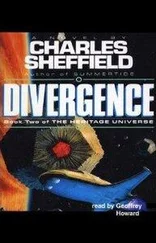I knew at that point what my defense attorney apparently did not: my fate, in spite of or because of her best efforts, was sealed.
The lesson had been driven home every day for a thousand days, from pre-mission selection to Earth orbit departure: the first Mars expedition faces more unknowns than anyone can guess. There will be injuries, there may be fatalities. No matter what happens you must regroup and assess your remaining resources; and you must continue.
Continue until you reach Mars; continue to descend to and explore Mars; continue until you return to Earth from Mars.
Celine raised her head and stared around the control room of the Schiaparelli. They had held together and worked together. They had overcome every obstacle. They had come so close to success, so agonizingly close; and they had failed.
The other three were ignoring each other, locked into private worlds of grief or guilt. Reza Armani had moved to one of the control chairs. He was working through the command telemetry as it had been received from Lewis until the final seconds of radio silence. With its help he was reconstructing every action that Zoe Nash had made, mimicking her exact sequence of movements at the ship’s controls. He was muttering to himself, and his features twitched constantly. When the Lewis became a cloud of hot gas he appeared to lose touch with reality.
Wilmer Oldfield was also staring blank-eyed at nothing and apparently doing nothing. He had vanished inside his head, to a place beyond Celine’s access or imagining. That didn’t worry her. Wilmer did that all the time.
She turned to Jenny Kopal. She could understand what Jenny was doing, and sympathize with it. Somehow, the transfer of chips and library programs from the Schiaparelli to the Lewis had been botched. Since that responsibility was Jenny’s, she felt she had killed Zoe, Ludwig, and Alta as directly as if she had driven knives into their hearts. She was poring, white-faced, over displays and transfer protocols.
And Celine’s own failure? She knew it now, when it was too late. Zoe had made the decision to return to Earth two days after their arrival at ISS-2. She did so before they knew the extent of the work before them, before the orbiters were fully inspected, before Zoe or anyone else had a rational basis for setting a schedule.
Celine had been deeply worried by the impulsiveness of Zoe’s action. But what had she done? Had she pointed out her reservations, knowing that her warning would be listened to and taken seriously — that this Cassandra was never ignored?
No. She had done nothing, overwhelmed by Zoe’s personality and confidence and strength of purpose. Or — place the blame where it belonged — overwhelmed by Celine’s own desperate longing to be home again on Earth.
She glanced around the cabin again, and found everyone’s eyes on her.
What now?
“We saw what happened to the Lewis.” Celine found herself speaking, in a voice surprisingly level and controlled. “We probably all have our own ideas as to what caused the disaster. At some point we will have to decide what to do about our own return to Earth. But not yet. Right now it is time for a group discussion.”
That’s right. Speak of the fate of the Lewis, rather than of Zoe, Ludwig, and Alta. Keep the discussion as impersonal and unemotional as possible. Don’t allow anyone to indulge in breast-beating.
But at the same time a voice inside her was asking other questions: Why am I doing this? Isn’t this a job for someone like Zoe, a natural leader? Why me?
And an answering voice: Their deaths have changed all of us. Jenny is more human, Wilmer is more alert, and Reza is closer to the borderline between normal and psychotic.
The other three didn’t seem to find Celine’s assumption of leadership as odd as she did. Jenny was rubbing her eyes, as though she had been secretly weeping, but she said quietly, “I think it is obvious what happened. I downloaded software modules for orbiter control from the program library onto spare chips available on the Schiaparelli. I installed those chips in the Lewis, replacing dead elements there. I believed that I had done everything correctly. But when Zoe tried to change the orbiter’s pitch, the software module gave a command that drove the correction the wrong way. The orbiter was entering the atmosphere more steeply after the correction, instead of less steeply. Drag forces and frictional heating on the Lewis increased, rather than decreasing, until temperatures went past hull material limits. If only I had been more careful, and checked—”
“We don’t know that’s what happened.” Celine cut Jenny off smoothly but firmly. “Did you find a software error that could produce an effect like that?”
“No. But I’m still looking. It’s the only thing that could possibly—”
“Not proven. We need to hear from everyone before we attempt an analysis.” Celine turned away from Jenny. “Reza?”
“Well, we may never know exactly what sequence of actions Zoe took.” Reza’s voice was higher than usual, but he picked up before Jenny could speak again. “There was no telemetry for the crucial period, because of ionization radio blackout. But the controls of the orbiters are quite a bit different from the controls of the Schiaparelli or of the Mars landers.”
Speech seemed to have stabilized him, because his voice was more normal when he went on, “I know that, because I’ve had more practice sessions than anyone except Zoe herself. It would be easy, in the heat of the moment, to invert a control command and increase the angle of attack rather than decreasing it.”
“If Zoe had done something like that she would have realized it in a split second,” Jenny said. “She would have made the correction. She didn’t.” Her voice wobbled and rose in pitch. “I tell you, Reza, it’s in the software routines.”
“We’ll discuss software and other possible causes later,” Celine said curtly. “I don’t want to talk about it now. Wilmer?”
She turned to him, without much hope of hearing anything useful. It wasn’t clear that he had even been listening. While Jenny and Reza were talking he had made a peculiar little drawing, and now he was scribbling numbers.
“Oh, it wasn’t the software.” Wilmer grinned like an idiot. “At least, it was, but not at all in the sense that Jenny means.” And then, while Celine glared, he went on, “Do you remember when we first noticed Supernova Alpha, you asked me what else it might do to the solar system? And I said, pretty much nothing, apart from melting ice for a while on the moons of the outer planets.”
“I remember.” With anyone but Wilmer, you would bat them over the head if they chose such an awful time to wander way off the subject. With Wilmer you waited. His digressions always came back to the point.
“Well, I was wrong,” he said. “Stupidly wrong. Wrong in a way that anyone with a year or two of elementary physics could point out.” He turned the sheet, so that they could see his drawing. It was of three concentric circles, with arrows pointing out from the second one toward the outermost. “We all know the pressure/volume/temperature relation for an ideal gas, Pv = RT. A planetary atmosphere satisfies that, almost perfectly. Increase the temperature and leave the pressure the same, and the volume increases linearly. Here’s Earth’s surface.” He pointed to the inner circle. “Above it lies the atmosphere. Pump in heat, an incredible amount of it, from Supernova Alpha. For a couple of months it’s like having two suns in the sky. The temperature of the surface rises. The atmosphere expands. Where does it go? The only place it can go.” He pointed at the arrows between the second and third circle. “Upward. The whole atmosphere swells.”
Читать дальше












